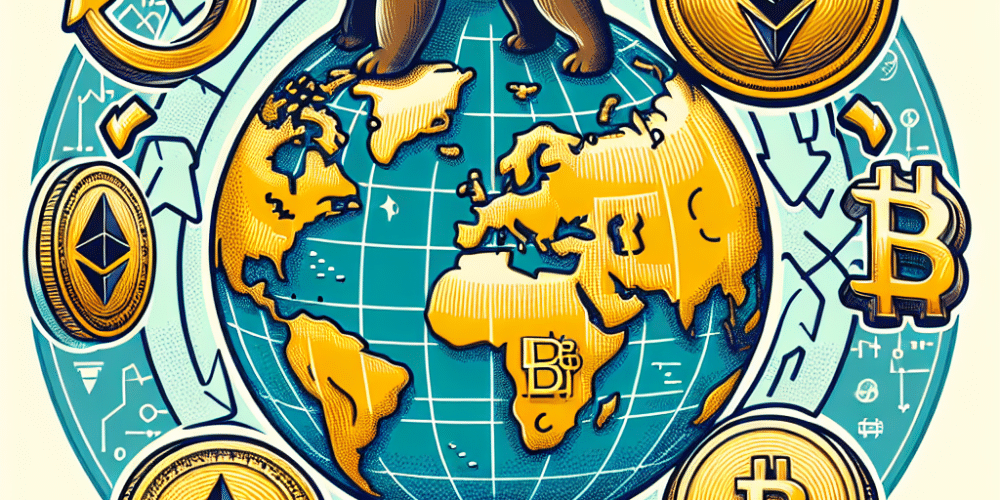In a significant development for the global cryptocurrency sector, Binance, the world’s largest cryptocurrency exchange by trading volume, has announced its plans to expand operations into Middle Eastern countries, starting with a strategic partnership in the United Arab Emirates (UAE). This move marks a pivotal moment for the acceptance and integration of blockchain technologies in the region.
The announcement came early this morning through a press release from Binance’s headquarters. The company revealed that it has received a provisional license from Dubai’s Virtual Asset Regulatory Authority (VARA), enabling it to operate as a fully regulated exchange for digital assets. This regulatory milestone is part of Dubai’s broader strategy to become a hub for financial technology and innovation.
Binance CEO Changpeng Zhao, commonly referred to as CZ, commented on the development, stating, “The Middle East is a crucial growth market for Binance because of its significant youth population and its increasing readiness to embrace new technology and financial services. Our entry with full compliance under UAE’s world-class regulatory framework speaks volumes of our commitment to providing secure and robust crypto services.”
Experts believe that Binance’s move into the UAE, and potentially other Middle Eastern markets, could catalyze considerable economic and technological growth in the region. The integration of a major global player like Binance with the local economy could also enhance the overall stability and legitimacy of cryptocurrency operations in the Middle East.
The Middle East has seen a burgeoning interest in cryptocurrency investments and blockchain technology, driven by a tech-savvy, younger generation that accounts for a significant portion of the population. Governments across the region have been keen to explore and adopt these technologies, which are poised to play a critical role in the future of global finance.
Dr. Abdul Aziz Al Ghurair, a UAE-based banking expert, mentioned, “The UAE’s vision to build an advanced digital economy includes fostering innovations like blockchain and cryptocurrencies. With robust regulatory frameworks, we are ensuring that investors and companies operate with security and compliance, which is essential for the growth of the sector.”
The VARA was established in March 2022 and was the first of its kind, aimed at providing a standardized legal envelope for cryptocurrency trading within the UAE. The authority’s comprehensive regulatory framework covers all aspects of the crypto industry, from AML/CFT protocols to operational and financial soundness, making Dubai an attractive location for crypto enterprises.
Following the announcement, there was a favorable reaction in the global cryptocurrency markets. Bitcoin and Ethereum, two of the largest cryptocurrencies by market capitalization, saw a slight uptick in their values, indicating positive investor sentiment surrounding increased regulatory clarity in significant markets like the UAE.
Binance’s expansion is not just a significant win for the company, but it also offers tremendous opportunities for local businesses and startups involved in the digital assets space. Ismail Ahmed, founder of a Dubai-based fintech startup, expressed enthusiasm about the news, saying, “Having Binance set up in the UAE not only boosts the credibility of digital assets but also creates numerous possibilities for local enterprises to grow through partnerships and technological exchange.”
Moreover, Binance’s commitment to ensuring security and compliance with local regulations could set a benchmark for other cryptocurrency enterprises looking to establish themselves in regulated markets. This could lead to more widespread adoption of secure and regulated blockchain practices, beneficial to the cryptocurrency industry globally.
In conclusion, Binance’s strategic expansion into the Middle East, starting with the UAE, is a noteworthy development for global cryptocurrency markets. It reflects the growing acceptance and institutionalization of cryptocurrency in parts of the world where digital assets have tremendous potential to impact traditional financial systems significantly. As the landscape of global finance continues to evolve, the intersection of regulation, technology, and market innovation remains critical to the future of cryptocurrencies.




